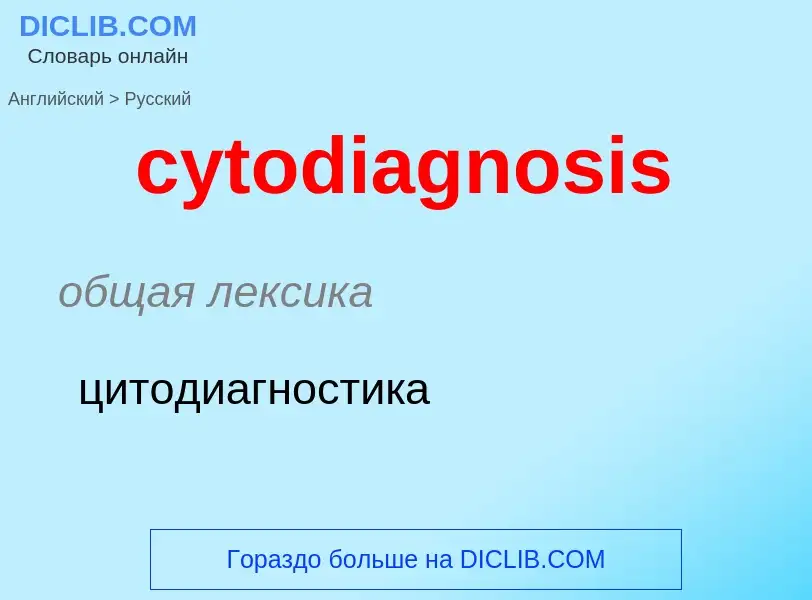Traducción y análisis de palabras por inteligencia artificial ChatGPT
En esta página puede obtener un análisis detallado de una palabra o frase, producido utilizando la mejor tecnología de inteligencia artificial hasta la fecha:
- cómo se usa la palabra
- frecuencia de uso
- se utiliza con más frecuencia en el habla oral o escrita
- opciones de traducción
- ejemplos de uso (varias frases con traducción)
- etimología
cytodiagnosis - traducción al ruso
общая лексика
цитодиагностика
медицина
эксфолиативная цитология
[saitə(u)pə'θɔlədʒi]
общая лексика
цитопатология
клеточная патология
существительное
общая лексика
цитопатология
Definición
Wikipedia

Cytopathology (from Greek κύτος, kytos, "a hollow"; πάθος, pathos, "fate, harm"; and -λογία, -logia) is a branch of pathology that studies and diagnoses diseases on the cellular level. The discipline was founded by George Nicolas Papanicolaou in 1928. Cytopathology is generally used on samples of free cells or tissue fragments, in contrast to histopathology, which studies whole tissues. Cytopathology is frequently, less precisely, called "cytology", which means "the study of cells".
Cytopathology is commonly used to investigate diseases involving a wide range of body sites, often to aid in the diagnosis of cancer but also in the diagnosis of some infectious diseases and other inflammatory conditions. For example, a common application of cytopathology is the Pap smear, a screening tool used to detect precancerous cervical lesions that may lead to cervical cancer.
Cytopathologic tests are sometimes called smear tests because the samples may be smeared across a glass microscope slide for subsequent staining and microscopic examination. However, cytology samples may be prepared in other ways, including cytocentrifugation. Different types of smear tests may also be used for cancer diagnosis. In this sense, it is termed a cytologic smear.



![An [[adenocarcinoma]] with typical features as can be seen on cytopathology An [[adenocarcinoma]] with typical features as can be seen on cytopathology](https://commons.wikimedia.org/wiki/Special:FilePath/Pap stain of adenocarcinoma in peritoneal fluid.png?width=200)


